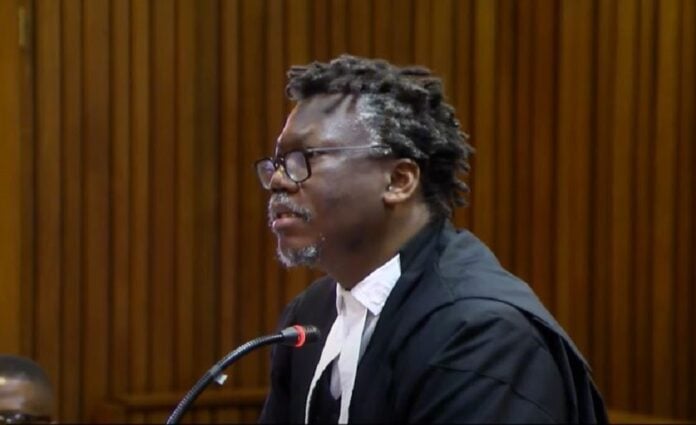Kapya Kaoma
The courtroom drama in Pretoria should unsettle President Hichilema. On the surface, the case concerns where former Zambian President Edgar Lungu should be buried. At its core, however, it raises questions of sovereignty, constitutional rights, and the limits of foreign state power.
From the outset, legal observers noted weaknesses in the South African ruling that briefly favored Hichilema’s administration. The judgment relied heavily on the Kaunda precedent without citing substantive South African law. In effect, Zambia asked a South African court to enforce an unwritten “Zambian law” on South African soil—a proposition most analysts consider legally untenable. The leaked Robert Chabinga audio may explain the ruling’s initial tilt, but its constitutional foundations remain shaky.
Sensing this fragility, Lungu’s legal team led by renowned Senior Counsel, Tembeka Ngcukaitobi, reframed the dispute. No longer Zambia versus the widow, the case became Zambia versus South Africa, transforming a burial conflict into a constitutional contest. The central question now was whether a foreign government could override South Africa’s domestic statutes on family rights and burial decisions.
This reframing is particularly damaging to Lusaka. South African law is explicit: the rights of the living outweigh the claims of the dead. Spouses and children—not states—determine the fate of a loved one’s remains. A corpse has no legal standing; it cannot inherit, contract, or accept benefits. Only the widow can. Zambia tacitly acknowledged this reality when it offered to restore Madam Lungu’s benefits—implicitly recognizing her legal primacy over the deceased. Yet still, Madam Lungu had to decide whether to accept them.
The implications are many. Accepting Zambia’s argument would undermine inheritance law and weaken family autonomy in South Africa. Unsurprisingly, local media have framed the dispute not as an internal Zambian quarrel but as a test of South African sovereignty. Public opinion, while not binding on the judiciary, has decisively sided with defending domestic law against foreign intrusion. With a respected advocate representing the widow, Pretoria’s legal community is closely watching. No wonder Kabesha is silent—things can go either way.
Even if the High Court ruling holds, the case will inevitably reach the Constitutional Court, where Zambia’s prospects appear bleak. It is improbable that South Africa’s highest justices would permit a foreign state to dictate burial practices or redefine family rights. Arguments that Madam Lungu’s foreign citizenship disqualifies her from South African inheritance protections collapse under scrutiny; such reasoning is akin to claiming foreign nationals cannot be prosecuted under South African criminal law. Lungu died in Lusaka, making South African burial laws applicable. Even if the Zambian government withdrew the case today, South Africans would likely want to ensure the ruling is set aside to safeguard their constitutional rights. Allowing it to remain on the books would undermine their family and inheritance laws.
For Lusaka, the optics are equally unflattering. A government fighting a widow over a corpse does not inspire—it appears petty and inhumane. Unlike in Zambia, where the executive often shapes judicial outcomes, Mrs. Lungu stands under the protection of a constitutionally independent court system. She answers not to political will but to constitutional principle.
Why, then, is the Hichilema administration expending diplomatic and legal capital on a case it is unlikely to win? The answer lies less in jurisprudence than in politics. Control over Edgar Lungu’s legacy carries symbolic significance in Zambia, where the former president retains loyal constituencies. Yet symbolism is not law, and Pretoria is not Lusaka. Hichilema’s persistence diminishes his statesmanship and casts him as insensitive to human grief. No wonder many Zambians have concluded that spiritual rather than political motives drive his insistence—why not give it up? Why, Mr. President?
As legal logic strongly suggests, if Madam Lungu prevails, the Zambian government will confront one uncomfortable truth: it chose to expend political credibility and risk diplomatic embarrassment to fight a widow in a foreign court over the body of a man who can no longer speak for himself. As the Bemba say, umwaiche, akalisha ilyo anya!


